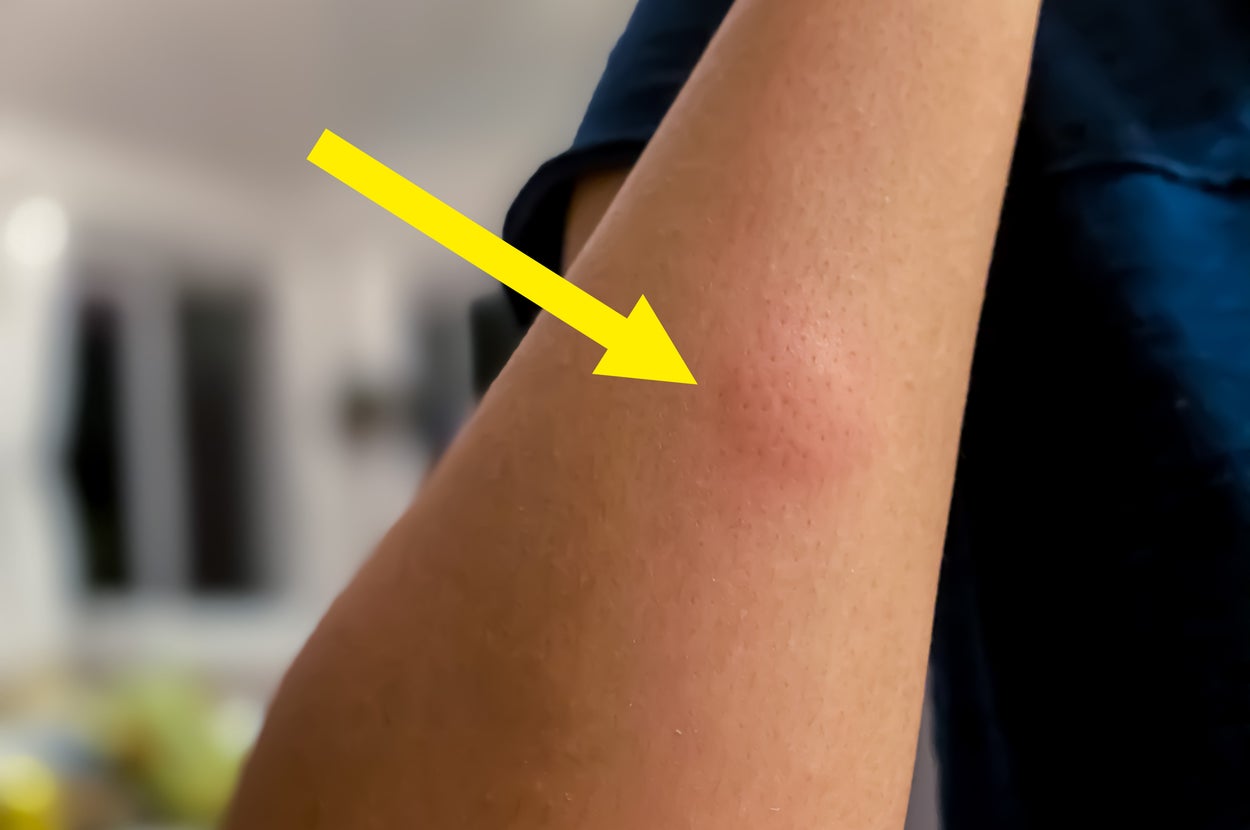
Never Do This After A Mosquito Bite
Of course, not scratching isn’t the only way to speed up your recovery, and there are a few other steps you want to take to prevent infection and make sure your bite gets better.
The very first thing you want to do after you get bit is wash the bite out with soap and water. This will help remove bacteria near the bite that could cause an infection. A mosquito bite is technically a small wound, said Frable, and “it’s generally a good idea to wash all wounds gently with soap and water.”
Then, you want to apply ice to the bite, ideally for about 10 minutes or so, Pritt explained. Ice can drastically reduce the itching along with inflammation, pain and swelling, according to the Cleveland Clinic.
Next up: Cover the bite with an anti-itch or antihistamine cream, such as calamine lotion or hydrocortisone. These products can drastically reduce itchiness and, most importantly, prevent you from scratching the bite and break the scratch-itch cycle, Pritt said.
If you don’t have these items in your medicine cabinet or aren’t able to get to a pharmacy, you can whip up an anti-itch paste at home. Simply combine a tablespoon of baking soda with a splash of water to create a thick paste. Then, rub the mixture over the bite, wait 10 minutes, and wash it off. This DIY concoction reduces itch, according to the Mayo Clinic, but, better yet, it prevents you from scratching the bite and making things even worse.
Finally, you want to keep an eye on the bite and pay attention to any symptoms you develop over the next week or two. It’s fairly common to develop a fever or even swollen lymph nodes immediately after the bite, so don’t panic if you experience these symptoms right away, Pritt said.
Not all mosquitoes carry disease, but some spread Zika, dengue and West Nile virus, all of which can cause severe illnesses and health complications. You can’t tell if a mosquito carried a pathogen by simply looking at the bite, according to Frable, which is why it’s crucial to pay attention to any symptoms. So, if you get a fever, a rash, severe headache, or confusion a week or two after the bite, check in with a physician. They can run diagnostics tests to determine if you contracted a mosquito-borne disease and administer supportive care to help you recover.
Fortunately, most mosquito bites resolve without any issues. But the less you itch and the better you take care of it, the sooner it’ll clear up … until the next mosquito comes along.
This article originally appeared on HuffPost.
First Appeared on
Source link






